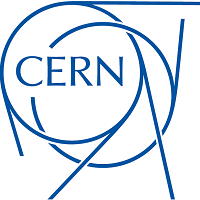![]() Receive the Funding Newswire [full access requires a subscription] each Tuesday, our Policy Bulletin each Thursday, and news about bridging Europe’s east-west innovation gap twice a month in The Widening.
Receive the Funding Newswire [full access requires a subscription] each Tuesday, our Policy Bulletin each Thursday, and news about bridging Europe’s east-west innovation gap twice a month in The Widening.
Sign up for the Funding Newswire

CERN, the European Council for Nuclear Research, is a global hub for frontier research in particle physics, and home to the Large Hadron Collider – the world’s largest and most powerful particle accelerator.
Established in 1954, the CERN laboratory sits astride the Franco-Swiss border near Geneva. It was one of Europe's first joint ventures and now has 23 member-states supporting its work. The instruments used at CERN are purpose-built, cutting-edge particle accelerators and detectors, including the 27km-long Large Hadron Collider (LHC). Accelerators boost beams of particles to high energies before the beams are made to collide with each other or with stationary targets, while detectors observe and record the results of these collisions.
Physicists and engineers at CERN study the basic constituents of matter: fundamental particles. Subatomic particles are made to collide together at close to the speed of light. The process gives us clues about how the particles interact and provides insights into the fundamental laws of nature. In that context, the CERN community seeks to advance the boundaries of human knowledge by delving into the smallest building blocks of our universe – such as our discovery in 2012 of the Higgs boson. Beyond our core research, hundreds of engineers, technicians and scientists develop novel technology and expertise that can be applied to fields beyond high-energy physics. From materials science to computing, particle physics demands the ultimate in performance, making CERN an important testbed for industry – including large companies, SMEs or recent start-ups.
The scientific advancements of CERN push the frontiers of technology, which has a positive impact on society globally. The transfer of CERN technologies and expertise to society is an integral part of these activities, providing novel solutions in many fields – from aerospace and the fight against climate change, to quantum computing and healthcare. The best-known CERN technology is the World Wide Web, invented to allow an ever-increasing number of scientists to share information. For many of us today, life without the Web seems inconceivable. Equally revolutionary is the Grid, which harnesses the power of computers around the world. It has been developed at CERN to process the vast amounts of data collected by the LHC experiments.
Learn more